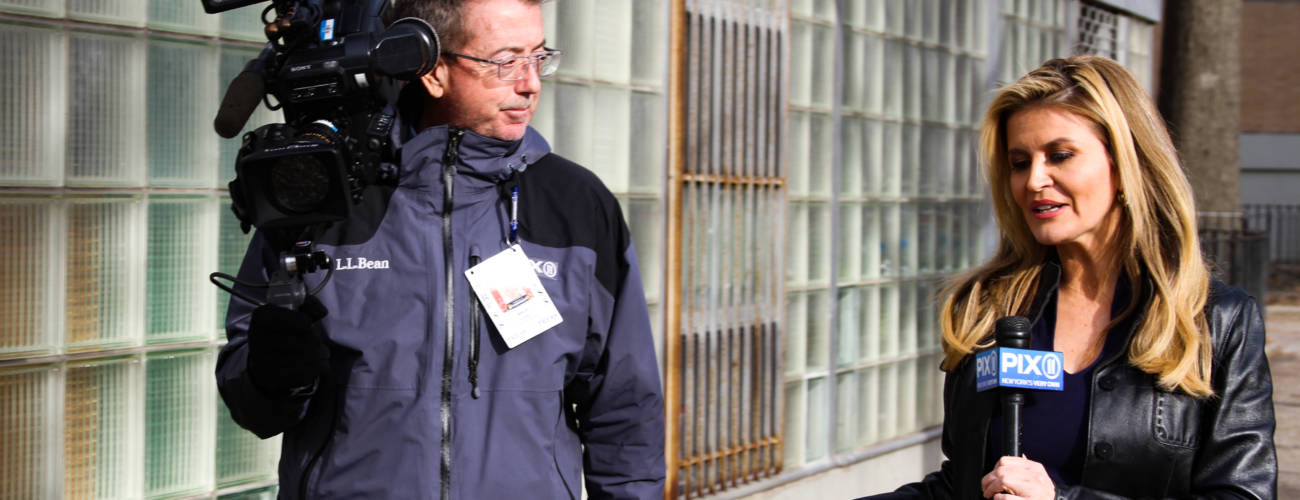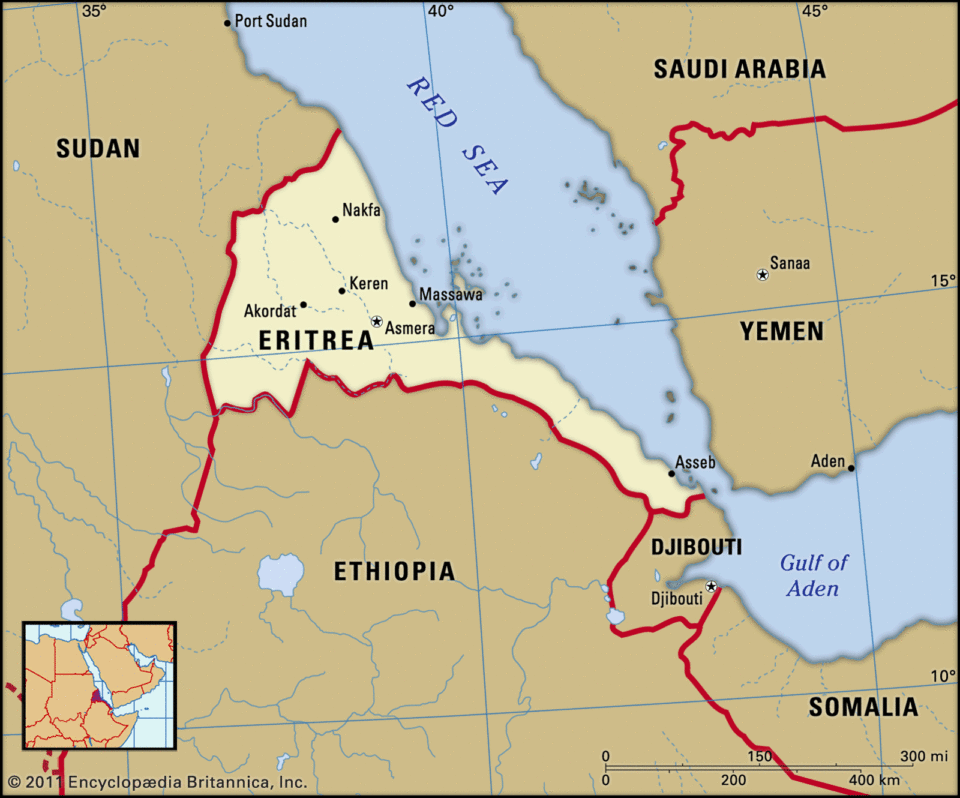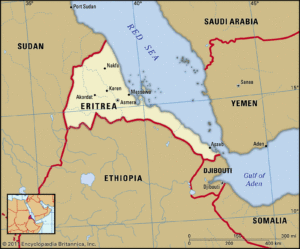Short Takes
Eritrea Ranked World’s Most Censored Country
- About 250 news outlets around the world have committed to a week’s worth of focused climate change coverage in the run-up to the U.N. Climate Action Summit on Sept. 23, Kyle Pope, editor in chief and publisher of Columbia Journalism Review, tells Brian Stelter in Stelter’s “Reliable Sources” podcast. Pope says it “could end up being the most extensive effort ever to sort of organize the world’s press around a single topic.” Separately, Edward Felsenthal editor-in-chief and CEO of Time, wrote in his publication, “Our intent with this issue — only the fifth time in our history that we have turned over every page of a regular issue, front to back, to a single topic — is to send a clear message: we need to act fast, and we can.”
-

Audra D.S. Burch Audra D.S. Burch, an award-winning national enterprise correspondent for the New York Times, is the winner of Morgan State University’s 2019 Vernon Jarrett Medal for Journalistic Excellence, the university’s School of Global Journalism & Communication announced Wednesday. “Burch was cited for a body of work that included articles titled, ‘Who Killed Atlanta’s Children;’ ‘Parkland Activists;’ ‘Why a Town is Finally Honoring a Black Veteran,’ and ‘Gardening While Black,’ ” an announcement said. Burch is to receive the prize, which includes a $10,000 check, at a Sept. 19 ceremony at the National Press Club in Washington. Soraya Nadia McDonald, culture critic for ESPN’s The Undefeated, was named runner-up.
- Jeffrey Dale, the copy editor at the Patriot Ledger in Quincy, Mass., who quit after the newspaper printed the “N” word over his objections, appeared on “Beat The Press” Friday on WGBH-TV in Boston. Host Emily Rooney, joined by former CNN White House correspondent Dan Lothian; Jon Keller of WBZ News; Dan Kennedy of Northeastern University; and Callie Crossley of WGBH News, discussed, among other things, whether printing the word to clarify whether the variation ended in “a” or “er” mattered.
- ‘Cox Media Group appointed Michelle Harper as VP and general manager of WHBQ-TV, Memphis effective immediately,” Jon Lafayette reported Monday for Broadcasting & Cable. “Harper had been VP of corporate sales at Cox Media Group. . . .”
- “For the first time, most new hires of prime working age (25 to 54) are people of color, according to a Washington Post analysis of data the Labor Department began collecting in the 1970s. Minority hires overtook white hires last year,” Heather Long and Andrew Van Dam reported Monday for the Post.
- “The number of children attending U.S. public schools with students of other races has nearly doubled over the past quarter-century, a little-noticed surge that reflects the nation’s shifting demographics, a Washington Post analysis has found,” Laura Meckler and Kate Rabinowitz reported Thursday for the Post. “At the same time, children in most big cities and many suburbs remain locked in deeply segregated districts, with black students more likely to be enrolled in segregated districts than Hispanics or whites, The Post found. . . .”

- To watch Monica Morales of New York’s WPIX-TV on and social media for the past year-and-half-plus “has been to enter, almost daily, the courtyards, hallways, kitchens, and bedrooms of more than 100 residential complexes maintained by the New York City Housing Authority,” Emma Whitford reported Tuesday for Columbia Journalism Review. “The largest public housing agency in the country, with more than 400,000 residents, NYCHA is more than $32 billion in debt and under federal scrutiny for its mismanagement, a staggering backlog of repair requests, and the precipitation of a lead paint crisis. Morales is the only reporter in New York to make covering public housing a full-time beat, reporting from city-owned complexes nearly every day of the week. She’s an anomaly nationally, too. . . .”
- “Robert Barba has been promoted to Spot News Editor for the Americas at The Wall Street Journal,” Veronica Villafañe reported Sept. 3 for her Media Moves site. She also wrote, “Barba, who joined the WSJ as Deputy News Editor in May 2015, now advances to a top leadership role, overseeing a team of six reporters who cover breaking corporate news for Dow Jones Newswires customers and the WSJ. . . .”
- “María Martínez-Guzmán has been promoted from VP of News Gathering to SVP and Executive News Director of Univision News, effective immediately,” Veronica Villafañe reported Aug. 27 for her Media Moves site. “In her new expanded role, Martínez-Guzmán will head programming efforts for all daily Univision network news properties . . . as well as the Sunday morning political show ‘Al Punto.’ . . . ”
- “The last print edition of Hoy Los Angeles was Friday, August 23,” Veronica Villafañe reported Aug. 28 for her Media Moves site. “The weekly’s parent company will now focus on its Spanish-language content platform LAT en Español, introduced in March 2018. At the time, creating a second Spanish-language news content website seemed like a test run to eventually eliminate Hoy. That’s exactly what happened. . . .”
- “Two days before Hurricane Dorian hit, Eugene Duffy, the managing editor of The Tribune in Nassau, sent a reporter and a photographer to Marsh Harbour in the Abacos,” Amanda Darrach reported Sept. 5 for a Columbia Journalism Review podcast. “As the town endured the largest storm on modern record, Duffy lost touch with his team. On this week’s episode, CJR Editor and Publisher Kyle Pope hears how social media has changed coverage of natural disasters and how vital local headlines can be in driving sustained relief efforts from NGOs and wealthier countries. . . .”
-

Timothy Martin Timothy Martin, the Wall Street Journal’s acting bureau chief in South Korea and a Journal veteran who has worked in Chicago, Atlanta, New York and Seoul, has been named the Journal’s bureau chief in Korea, Chris Roush reported Wednesday for his Talking Biz News.
- “Reuters has appointed Arlyn Gajilan as its digital news director, in charge of setting the editorial direction for Reuters.com and other digital offerings,” Chris Roush reported Wednesday for his Talking Biz News.
- Lest one think that public editors and ombudsmen who have watched President Trump’s assault on the press were universally critical of Trump,Ted Diadiun, a member of the editorial board of cleveland.com and the Plain Dealer, is a defender. Under the headline, “Left’s obsession with all things Trump continues unabated,” Diadiun, reader representative from 2005 to 2015, wrote Sept. 6, “You will look long and hard in the nation’s national newspapers and newscasts for anything resembling a positive story about something the president has done, but you’ll have no such trouble finding near-daily criticism and ridicule on their opinion pages and in their ‘news’ stories. . . . “
c=”http://journal-isms.com/wp-content/uploads/2019/09/Eritrea-map-boundaries-cities-locator-300×249.gif” alt=”Eritrea-map-boundaries-cities-locator” width=”300″ height=”249″ />”Eritrea is the world’s most censored country, according to a list compiled by the Committee to Protect Journalists,” the press freedom group reported Tuesday. “The list is based on CPJ’s research into the use of tactics ranging from imprisonment and repressive laws to surveillance of journalists and restrictions on internet and social media access.
“Under Article 19 of the Universal Declaration of Human Rights, everyone has the right to seek and receive news and express opinions. These 10 countries flout the international standard by banning or severely restricting independent media and intimidating journalists into silence with imprisonment, digital and physical surveillance, and other forms of harassment. Self-censorship is pervasive.
“In the top three countries — Eritrea, North Korea, and Turkmenistan — the media serves as a mouthpiece of the state, and any independent journalism is conducted from exile. The few foreign journalists permitted to enter are closely monitored.
“Other countries on the list use a combination of blunt tactics like harassment and arbitrary detention as well as sophisticated surveillance and targeted hacking to silence the independent press. Saudi Arabia, China, Vietnam, and Iran are especially adept at practicing these two brands of censorship: jailing and harassing journalists and their families, while also engaging in digital monitoring and censorship of the internet and social media.
“The list addresses only those countries where the government tightly controls the media. . . .”


